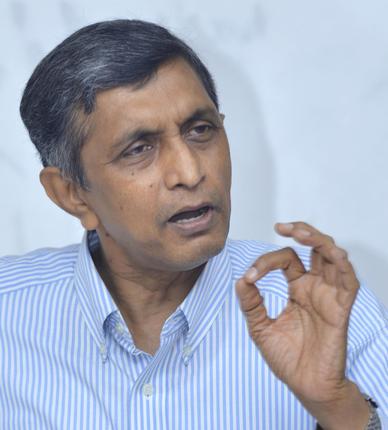 CHENNAI, August 25; The time has come for the country to look at an alternative electoral process and move away from the ‘first-past-the-post’ (FPTP) system to ‘proportional representation’ (PR), according to a member of the Andhra Pradesh Assembly and founder-president of Lok Satta party, Jayaprakash Narayan.
CHENNAI, August 25; The time has come for the country to look at an alternative electoral process and move away from the ‘first-past-the-post’ (FPTP) system to ‘proportional representation’ (PR), according to a member of the Andhra Pradesh Assembly and founder-president of Lok Satta party, Jayaprakash Narayan.
The FPTP electoral process currently in the country had become vitiated to a stage where the “best and brightest” were literally unelectable because of the election expenses in fashion. “In major States, it costs between Rs. 2 crore and Rs. 6 crore to compete as an MLA and up to Rs. 10 crore to compete as an MP,” he said on Saturday, delivering a lecture-discussion on ‘Towards electoral reform: money power in electoral politics and campaign spending’ organised by The Hindu Centre for Politics and Public Policy at the newspaper office here.
“In moments of irrational thought, I would sometimes wish that the country sees three successive elections in as many years so that the money some of the elected representatives have collected in anticipation of next election expenses would get depleted,” he jocularly remarked. “But the fact is big money, criminal nexus, caste base and entrenched personal following are often prerequisites for electoral success.”
Mr. Narayan, who has served on several national panels, and whose contributions include framing the Right to Information Act when he was a member of the National Advisory Council, said reckless populism by some of the States to get marginal votes was hurting the exchequer. He identified the “free colour television” scheme [implemented by the previous Dravida Munnetra Kazhagam government in Tamil Nadu] as a watershed moment in such practices, where the freebie did not have constitutional justification whatsoever.
The Proportional Representation (PR) system, as an electoral process, would offer a viable alternative based on several positives: vote buying would diminish as marginal votes are not critical; competent and honest politicians would become assets; rational, long-term policies would be followed; and national parties would become viable in all States.
He also added that there were some concerns about the PR system, most specifically that it might not favour smaller regional groups. However, it could be seen as a positive too, because there was little scope for sectarian politics. “PR allows parties to reconcile conflicting interests for maximum acceptance,” he added.
Rare breed
In his welcome address, N. Ravi, Director, Kasturi and Sons Ltd and Member, Board of Management, The Hindu Centre, described Mr. Narayan — a physician by training and who joined the Indian Administrative Service and later entered politics — as one belonging to a rare breed of people, away from those who just threw up their hands in despair and bemoaned the state of Indian politics from the sidelines. “By actively engaging in politics, he has sought to take the system head on and change it.”
